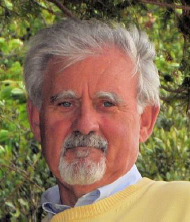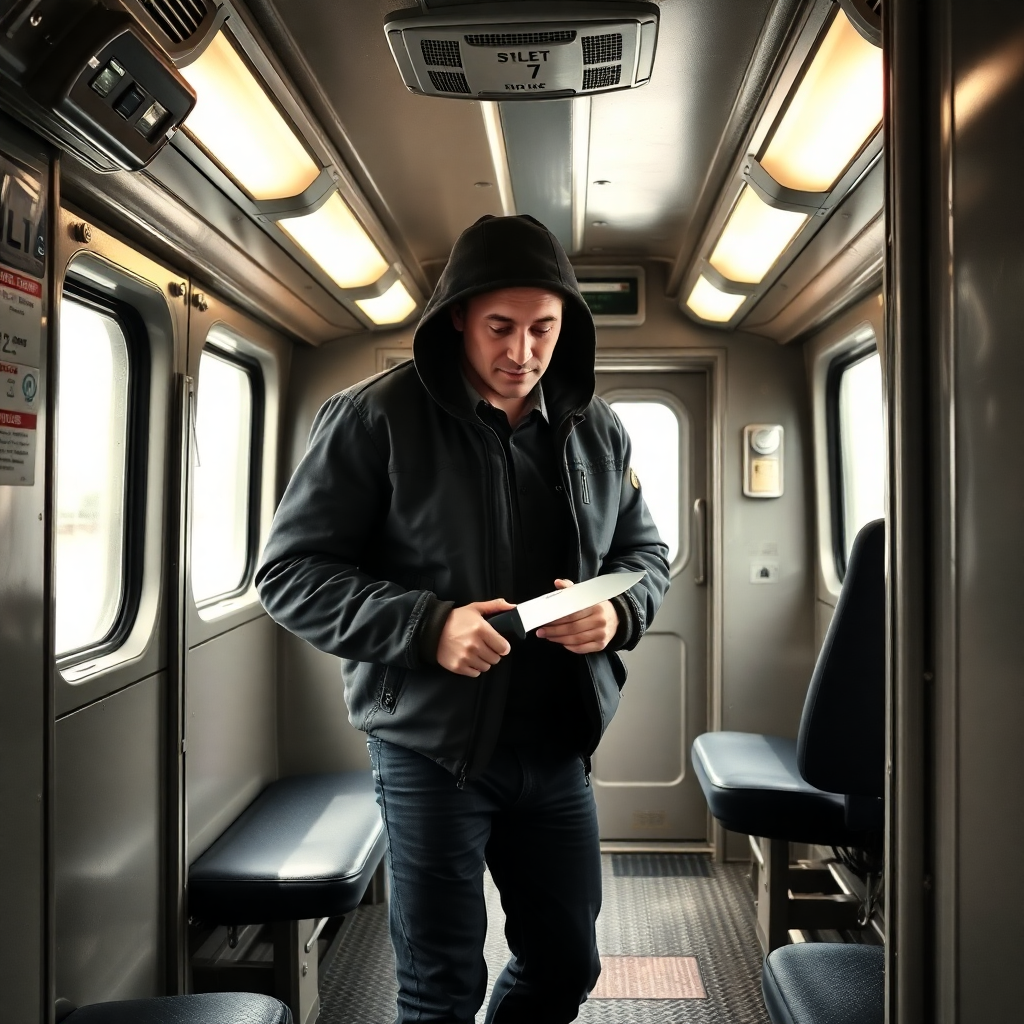
KEN GETS HIJACKED

Robert Curtis

Enjoy our stories?
Join our Readers List for updates.
SHORT BIO:
Robert F. Curtis gained entry into the Army’s Warrant Officer Candidate program where he learned to fly, starting him on the path to a military career as an aviator in the Army, National Guard, and Marine Corps, and as an exchange officer with the British Royal Navy. After service in Vietnam he attended the University of Kentucky, graduating with honors with a bachelor’s degree in political science. Later, while serving at Naval Air Systems Command in Washington, D.C., Robert completed a master’s degree in procurement and acquisition management at Webster University. Robert is an FAA certified commercial pilot in both helicopters and gyroplanes. His military awards include the Distinguished Flying Cross, Bronze Star, Purple Heart, and twenty-three Air Medals
Ken Gets Hijacked
The large, very drunk man put the knife to the driver’s throat and said loudly, “This is a hijacking! Do exactly as I say, or you’re a dead man.” The driver was incredulous and froze where he was. He was incredulous because he wasn’t driving a car or a bus or a boat or flying an airplane. He was driving a passenger train and had never heard of anyone attempting to hijack one. His fireman was also astounded at this turn of events and raised his hands without being told. Neither the driver nor the fireman saw the man climb into the cab but here he was!
Petty Officer Second Class Ken Trujillo of the United States Navy was a passenger on the driver’s train that night. He was returning to his boat in New London, Connecticut from a long weekend in New York City and was completely unaware of the crime in progress. His boat was a submarine. All submarines, no matter how big they are, are called “boats”, not ships. Ken was perfectly built to be a submariner. He was 5’4” tall and weighed no more than 140 pounds in all his clothes and with a pocket full of change. His size meant that the confined spaces in a sub seemed commodious to him.
Ken was proud of his 140 pounds because when he tried to enlist in the Navy six years earlier, he was turned away because at 110 pounds he was underweight. For his height, the Navy required its sailors to be at least 115 pounds. Ken was undaunted. He promptly headed to the nearest grocery store and spent the last of his money on five pounds of bananas and a soft drink. Sitting on the curb, he ate the entire five pounds and finished the Coke before walking back to the recruiter’s office and demanding to be reweighed. This time he tipped the scales at 116 and was promptly accepted as a United States Navy recruit. He shipped out for recruit training the next day.
Enlisting in the Navy wasn’t Ken’s first attempt to escape a hard life. When he was 14 his family was living in Colorado in a passenger rail car that had been converted into apartments. Ken decided that he could get along just fine on his own and ran away from home. His means of escape was a Cushman motor scooter with a top speed of 35 miles per hour. He made it 200 miles before the Cushman died and he had to spend the last of his money to get a bus to back home. Four years later armed with a General Education Certificate in lieu of a high school diploma and his birth certificate he presented himself to the recruiters and after gaining five pounds became a sailor.
Ken didn’t enlist in the Navy to become a submariner. He enlisted because he wanted to escape from dead end jobs and also because he wanted to eat regularly. The pay for the work he could get often left eating problematic. Besides, the military seemed safe since the Korean War was drawing to a close, leaving the odds of seeing any combat small. No, Ken didn’t enlist to be a submariner, but the Navy took one look at this short, skinny young man and his enlistment test scores, and decided for him – submarines it was! After finishing his recruit training at Naval Station Great Lakes, he was off to school to learn about the World War II veteran Fleet Boat diesel submarines.
The first thing he learned after joining his first boat was that in diesel powered submarines, you can never get the smell of diesel out of your clothes, maybe never get it out of your skin either. It doesn’t matter if you are in uniform or civies, the diesel smell never goes away and the chicks do not dig it. Now, after six years of service he long since had the silver Dolphins badge that marks United States Navy enlisted submariners and had had a meteoric rise to Petty Officer second class, a major achievement in the peace time Navy. Right at that moment on the train, he also had the beginnings of a world class hangover. What’s the point of being a sailor, especially a submarine sailor if you don’t spend everything you have on a blowout now and then? As someone once said, “I spent half of my money on booze and women. The rest I just wasted.”
Looking into the dark of the railyard from his seat in the first carriage, Ken wondered, why is this train not moving? He was due to return from his liberty by 0700 hours the next morning and knew he would get hell from the Master Chief who was COB (Chief of the boat, the senior enlisted man) if he didn’t make it. Hell meant standing extra watches, which meant less sleep, something always in short supply when the boat was at sea. Ken was beginning to regret that last beer at that last bar that kept him from making an earlier train. Luckily, he still had a half pint of cheap bourbon in his bag to help keep the headache at bay and to keep him from thinking too much about what the COB was going to do if he was late.
The conductor too wondered why the train had stopped. Something broken, maybe? Or something on the tracks? Lacking a walkie-talkie, he had no direct contact with the engine. Sticking his head out the window he could see the signals ahead indicated that they were clear to proceed. The only thing to do was take a walk forward and see what was going on in the engine’s cab. Ken watched as the conductor opened the door to the car and climbed down onto the track. Headache notwithstanding, Ken was also curious about what was going on. Trains stop sometimes but he had never seen the conductor exit the train while it was stopped, so Ken followed him.
As they approached the engine, they could hear a voice yelling above the sound of the idling engine, not what the person was saying but something very insistent. The people in the cab weren’t visible from the ground so the conductor climbed up to see what the issue was. Ken followed. In the small cab Ken saw the three train men holding their hands up and another man waving a knife about. The man with the knife was yelling in a drunken voice, “I want to go home”.
When the knife wielder paused his demands for a moment, the conductor calmly said, “Mister, you do know this is a train, don’t you? We can’t go anywhere but where the tracks lead.”
The drunk stopped yelling. Somehow this had not occurred to him. When the fact that this train couldn’t take him to his house finally got through to him, he lurched for the exit from the cab but slipped and fell out, the knife tumbling from his hand in the fall. Ken swung aside so the man missed him as he headed for the gravel ballast beside the engine. When he hit the ground, Ken jumped on top of him, his white sailor’s uniform almost glowing in the dark. He was trying to hold the much bigger man down until help arrived. Ken’s 140 pounds worked because the would-be hijacker had the wind knocked out of him, probably had some good bruises from the impact with the ground, and some cuts and scrapes from the rough granite ballast to go with it. In a few moments, a couple of railroad policemen were there and took over from Ken.
An hour later, Ken’s statement had been taken by the police and he was free to go. The conductor thanked him very much for his help, gave him a free first-class ticket for his next ride, and put him on the next train north also in first-class. All this didn’t change the fact that he was going to be hours late returning to his boat. It also didn’t change the fact that his once immaculate white uniform now had a tear in the left knee and was filthy from rolling around on the track with the drunk.
Ken took a cab from the train station to the Navy base, hoping all the while that the COB was somewhere else when he went arrived. Alas it was not to be. Ken requested permission to come onboard and faced right to salute the flag on the stern. As he turned back around, he was face-to-face with the COB, who had figurative steam coming out of his ears. The COB saw a sailor in a ratty uniform who was hours late returning from liberty. It didn’t help that Ken finished that little bottle of bourbon on the trip north and smelled faintly of alcohol. No COB could ever stand any of these conditions.
“I can explain”, started Ken desperately. “You see there was this drunk and he tried to hijack the train I was on and I held him down until the cops could get there and they wanted a statement from me which made me miss getting back on time. They gave me this free ticket as a reward for helping get the guy arrested”.
Looking at the first-class ticket Ken was holding out, the angry look on the COB’s face changed to one of wonder. He replied, “I’ve heard some stories about why sailors were UA (unauthorized absence) but this is the most original one I’ve ever heard. It’s so original, I’m going to believe it. Get your sorry rear end below and into working uniform.”
Ken couldn’t believe his luck. Sadly, none of the other sailors in his division believed his story, but did compliment him on fooling the COB. Years later, when Ken was himself COB on an attack submarine, he always remembered getting away with his little unplanned UA and would cut the sailors on his boat a little slack when they came up with a good story on the circumstances that led to their misdeeds. But no one ever did believe that Ken was on a hijacked train.
*** end ***